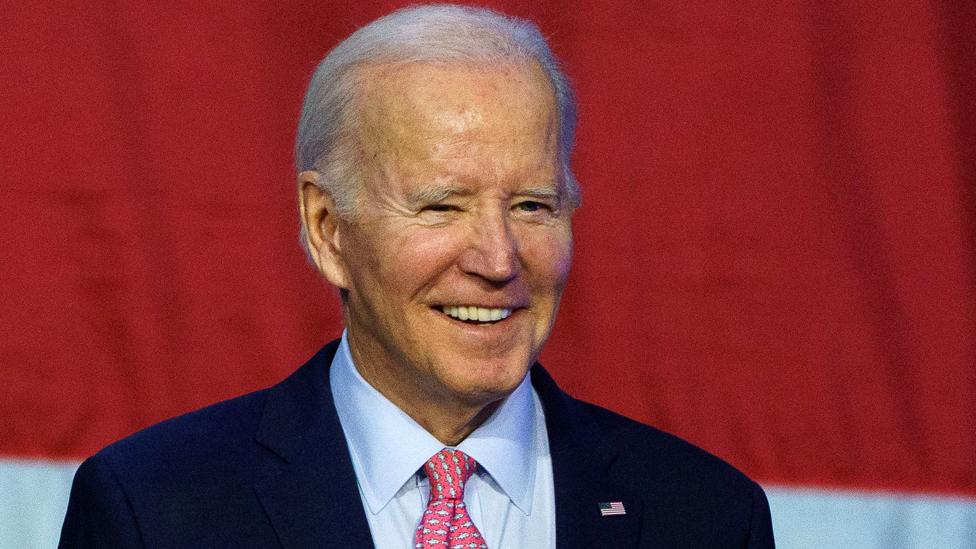Super Tuesday: Four things to watch out for as Americans vote
- Published
Watch: Why this Super Tuesday isn't as exciting as past ones
US voters head to the polls in 15 states spanning the breadth of the continent on Tuesday, from Maine to California and Alaska to Alabama.
At stake are more than a third of the delegates to this summer's Democratic and Republican conventions, which will determine the two major parties' presidential candidates.
It is the biggest one-day prize of the presidential nomination calendar, conducted in states (and American Samoa) with a total population of more than 134 million.
This year's Super Tuesday is not expected to generate many surprises, with Joe Biden and Donald Trump continuing their march towards a rematch of the 2020 election in November.
As the results roll in throughout the evening, however, there will still be plenty to watch out for. Here are four key things to keep in mind.
1. A Trump rout in the making?
Republicans have held 10 nomination contests so far. In all but one - Sunday's primary in Washington DC - Donald Trump has been victorious.
Polls indicate that the former president will run the table on Super Tuesday, carrying the 15 states by a comfortable margin. If he does so, he will build up a near-insurmountable lead in convention delegates, given that many of the states allocate their entire slate of delegates to whoever wins a majority of the vote.
While Mr Trump may not be able to mathematically guarantee that he is the Republican Party nominee, a strong Super Tuesday should eliminate whatever shadow of doubt there was remaining even after his early successes.
Behind what should be formidable top-line numbers, however, keep an eye on exit polls that may reveal continued disaffection with the former president among some primary voters. Earlier surveys indicated a not insignificant minority would not support Mr Trump in November - or could turn on him if he were to be found guilty in one of his trials.
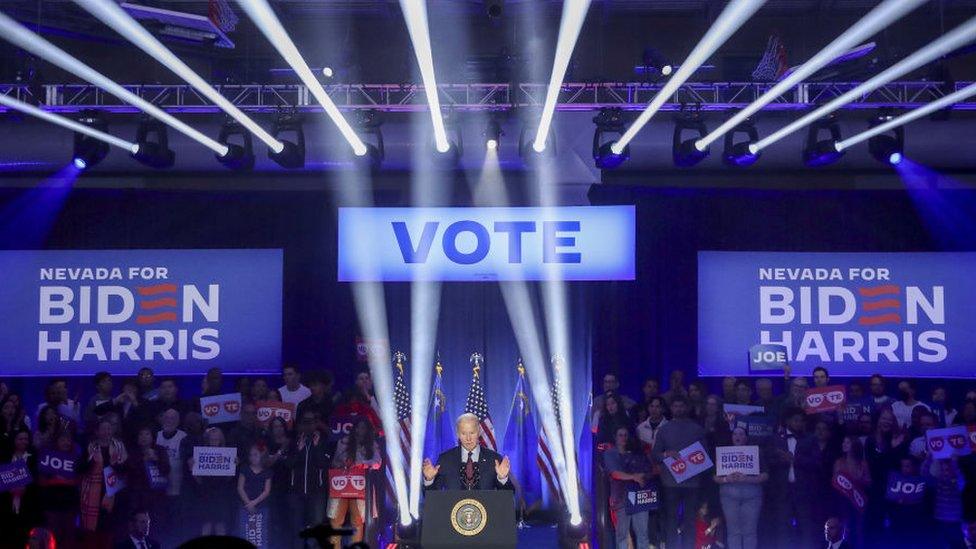
2. Nikki Haley's exit plan
The former South Carolina governor, Mr Trump's sole remaining Republican opponent, has benefitted from the support of many of those anti-Trump primary voters, but it hasn't been nearly enough. She has doggedly stayed in the race despite a streak of bad results (Washington DC, notwithstanding).
Weeks ago she pledged to stick it out through Super Tuesday, hoping to add to her delegate totals, particularly in the 11 states holding primaries that are open to non-Republican voters, an area of relative strength for her.
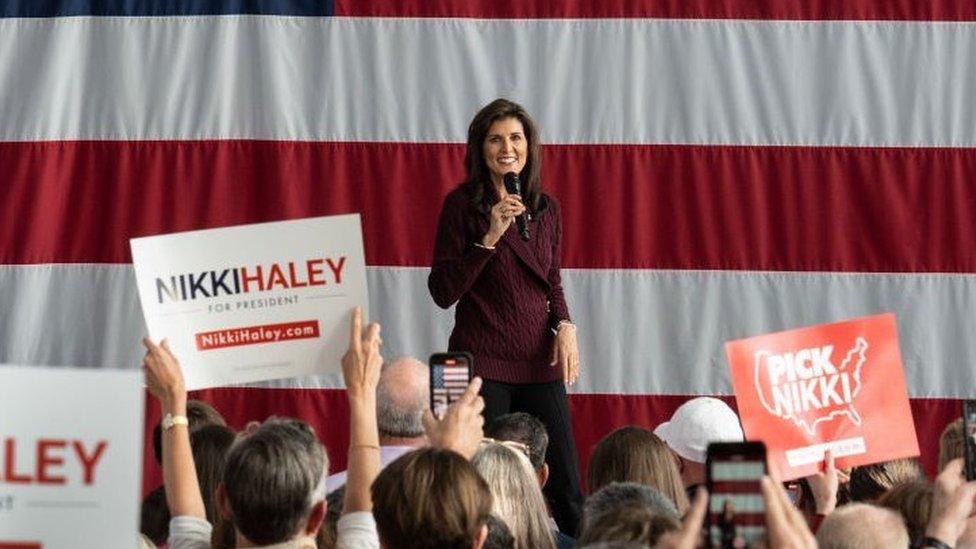
Haley seen at a campaign rally in North Carolina on Saturday
Already, however, rumours are floating that she is preparing to end her campaign in the days ahead.
A particularly thorough drubbing on Tuesday may accelerate those plans or even lead her to throw in the towel that evening. Assuming she doesn't do that, look for hints in her speech on Tuesday night as to her plans in the coming days.
Will she ultimately endorse Mr Trump, as her fellow non-Trump presidential rivals have? Would she reconsider an independent presidential bid? Is she already positioning for a 2028 presidential run?
At 53, Ms Haley is still young (for a national politician). But the decisions she makes after Super Tuesday could go a long way in determining what doors open and which are slammed shut.
3. A Biden protest vote
If there's little drama in the Republican primary race at this point, there's practically none on the Democratic side.
Joe Biden has rolled to comfortable victories against token opposition in South Carolina and Michigan (as well as a nonbinding vote in New Hampshire). He appears poised to continue his march on Tuesday.
The most consequential obstacle to the president so far has come from those who oppose his Gaza policy. They accuse him of turning a blind eye to what critics regard as Palestinian genocide, an accusation which Israel vehemently denies, saying it is focused on destroying Hamas.
In Michigan last week, more than 100,000 voters - 12% of the total - turned out to cast ballots for "uncommitted" instead of for Mr Biden, as part of an organised Gaza war protest.
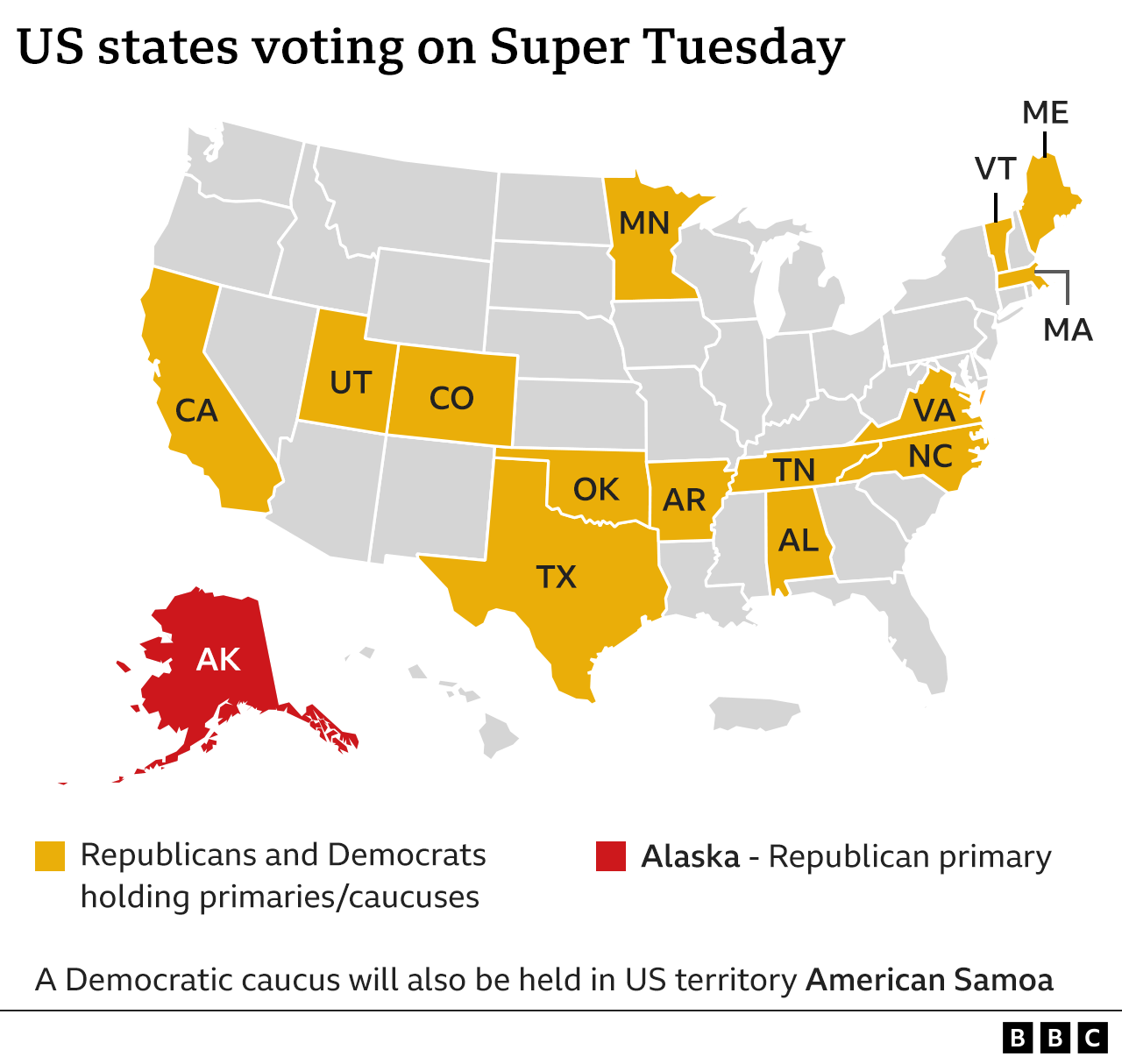
While there do not seem to be similar efforts in the 14 states that hold Democratic votes on Tuesday (Republicans are also voting in Alaska), watch the results to see if there are any significant non-Biden surprises.
With its largest-in-the-nation Muslim and Arab population, Michigan's results may be the high water mark for the Gaza protest. But turnout levels across the US, as well as opinions registered in exit polls by Democratic voters, could provide indications of the strength (or weakness) of Mr Biden's campaign efforts so far.
4. Down-ballot drama
In several states, voters are casting primary ballots for more than just president. How those results shake out will help determine what kind of political environment Mr Trump or Mr Biden has to deal with after taking the oath of office next January.
California is holding its non-partisan "jungle" primary, where the top two vote-getters, regardless of party affiliation, advance to the general election. Voters there are deciding on candidates for the Senate seat held by Dianne Feinstein, who died last year, and determining opponents for several Republican House incumbents who are high on the Democratic target list.
In Texas, the big battles are within the Republican Party, as Attorney General Ken Paxton - with the help of Donald Trump - is targeting state politicians who unsuccessfully tried to remove him from office on corruption charges.
The legislature in the second-most populous US state is already run by Republicans who have enacted aggressive legislation on voting rules, abortion and immigration. It could swing even further to the right if Mr Paxton's efforts are successful.
North Carolina is the only swing state voting on Super Tuesday and there's a lot going on there. Its race for governor will be one of the closest watched in November and if they win their primaries it will pit the state's Democratic attorney general, Josh Stein, against Republican front-runner, Lieutenant Governor Mark Robinson.
North Carolina has primaries for five open House of Representatives seats. Because the state's Republican-controlled legislature redrew the maps to favour their party and limit closely contested races, the votes on Tuesday will probably determine who goes on to comfortably win in November.


If you're in the UK, sign up here.
And if you're anywhere else, sign up here., external

- Published5 March 2024

- Published15 April 2024
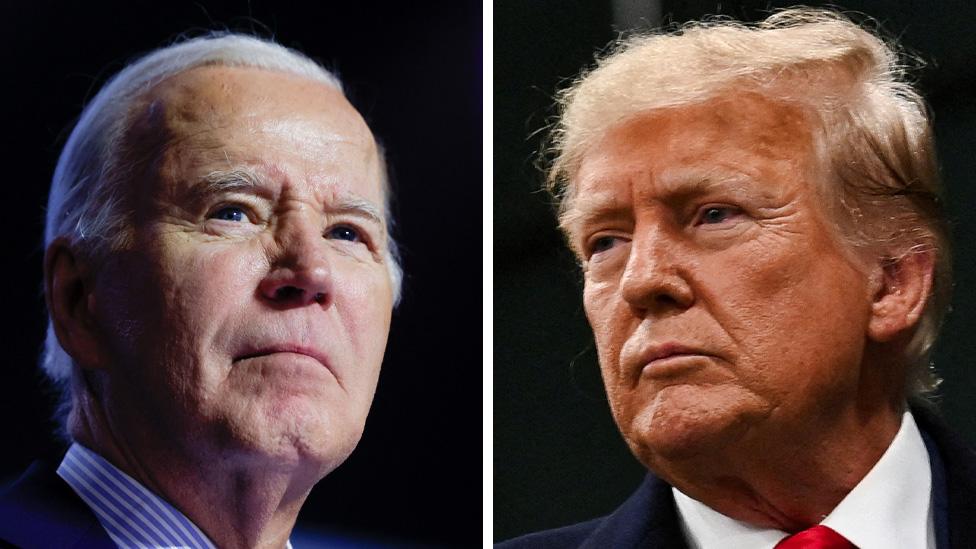
- Published7 November 2024

- Published20 November 2023
